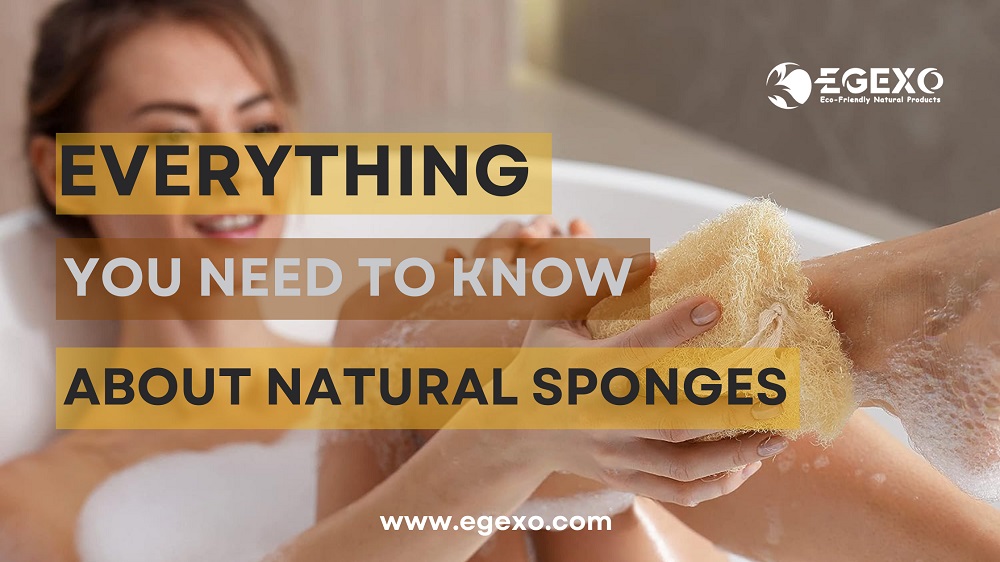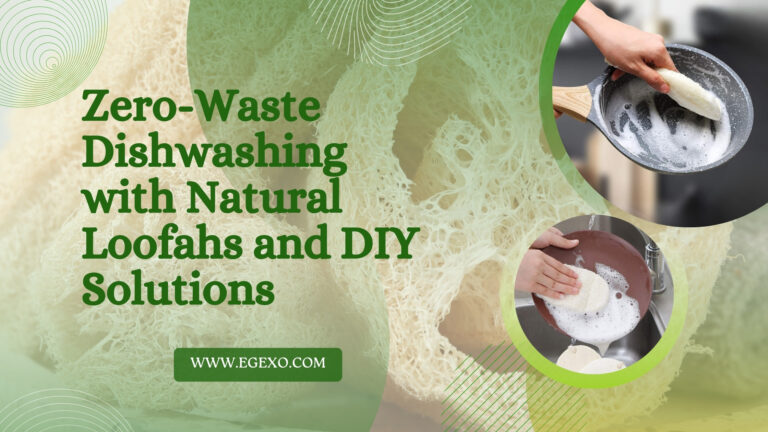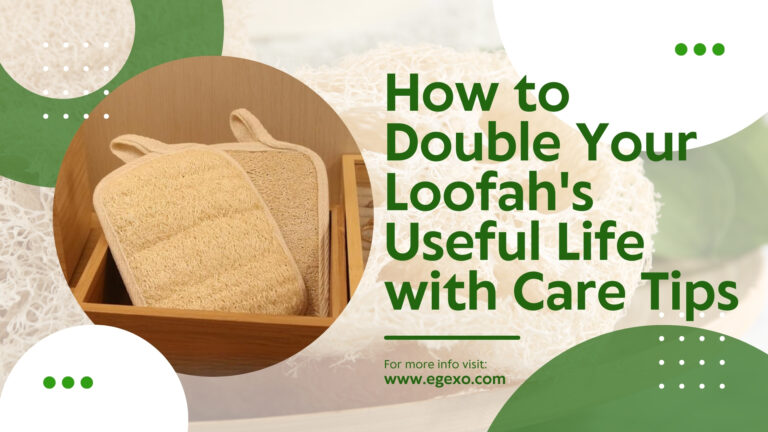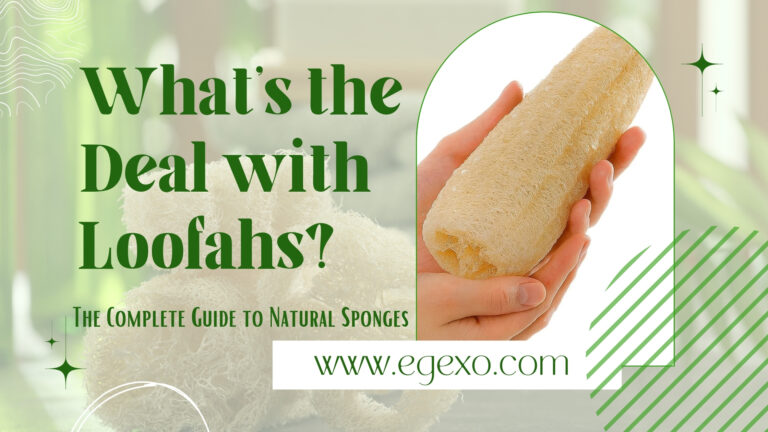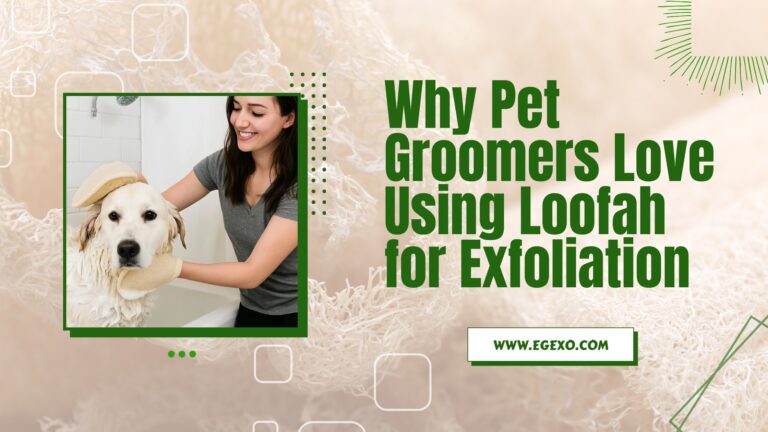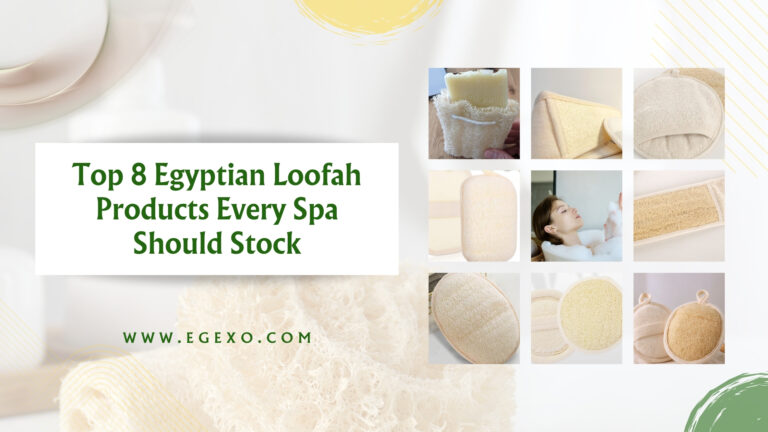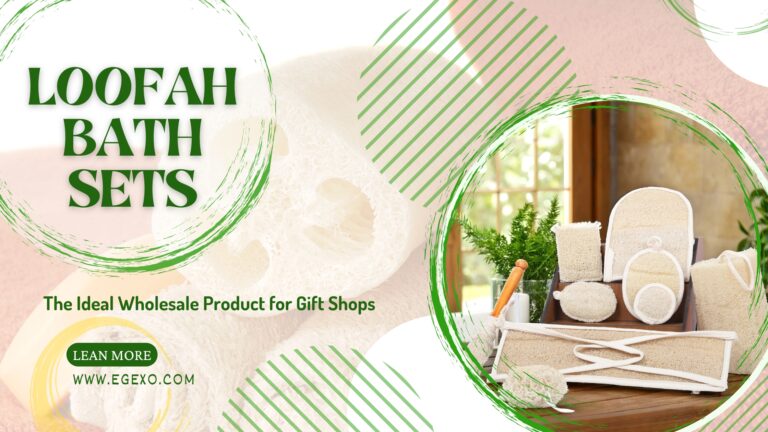Natural Sponges: The Complete Guide to Types, Benefits, and Wholesale Sourcing
Natural sponges represent one of the oldest and most effective cleaning tools known to humanity, with archaeological evidence suggesting their use dates back over 3,000 years to ancient Mediterranean civilizations. Today, the global natural sponge market has grown into a thriving industry valued at approximately 320 million USD, driven by increasing consumer demand for sustainable alternatives to plastic-based products. Whether you are a spa owner seeking premium exfoliation products for your clients, a retailer looking to expand your eco-friendly inventory, or an individual consumer searching for gentle skincare solutions, understanding the diverse world of natural sponges can transform your approach to cleaning, bathing, and personal care.
This comprehensive guide explores everything you need to know about natural sponges, from their rich historical origins to modern wholesale sourcing strategies. You will discover the key differences between plant-based sponges like Egyptian luffa and marine-derived sea sponges, learn proper care techniques that can extend product lifespan by up to 50 percent, and understand quality grading standards that matter for both personal use and bulk purchasing decisions. With over 25 years of experience in loofah cultivation and export, Egexo brings industry expertise to help you make informed decisions about natural sponge selection and sourcing.
For wholesale buyers ready to explore bulk options, you can request a quotation or download our complete product catalog to review specifications and MOQ requirements.
The History and Evolution of Natural Sponges
The story of natural sponges begins in the warm waters of the Mediterranean Sea, where ancient Greek and Roman civilizations first discovered the remarkable cleaning properties of marine organisms. Historical records from as early as 800 BCE describe Greek divers harvesting sea sponges from ocean floors at depths reaching 30 meters, using only their breath-holding abilities and simple cutting tools. These early harvesters recognized that certain marine animals, when dried, produced soft yet durable materials perfect for bathing, cleaning, and even medical applications.
Ancient Civilizations and Sponge Use
The Egyptians played a particularly significant role in natural sponge history, utilizing both marine sponges from the Mediterranean coast and cultivating plant-based alternatives along the fertile Nile River valley. Egyptian luffa cultivation, which continues to this day, originated during the Ptolemaic period when farmers discovered that the Luffa aegyptiaca plant produced exceptional fibrous material when properly processed. This tradition has been maintained and refined over millennia, making Egypt one of the premier sources for high-quality natural luffa products in the modern era.
Roman bathhouses, renowned throughout the ancient world for their sophistication, featured natural sponges as essential hygiene tools. Wealthy Romans prized soft Mediterranean sea sponges for personal bathing, while coarser varieties served household cleaning purposes. The Romans also developed early trade networks that distributed natural sponges across their vast empire, establishing commercial patterns that would influence the industry for centuries.
The Modern Natural Sponge Renaissance
The 20th century saw a dramatic shift away from natural sponges as petroleum-based synthetic alternatives flooded the market. Synthetic sponges offered lower production costs and consistent sizing, leading many consumers and businesses to abandon traditional natural options. However, growing environmental awareness in recent decades has sparked a significant renaissance in natural sponge demand.
Research published by environmental organizations indicates that synthetic sponges contribute approximately 36,000 microplastic particles to wastewater with each use, while natural sponges biodegrade completely within 30 to 60 days under composting conditions. This ecological advantage, combined with superior performance characteristics for many applications, has driven a 23 percent annual growth rate in the natural sponge sector since 2019.
Types of Natural Sponges and Their Characteristics
Understanding the different categories of natural sponges helps both consumers and wholesale buyers select appropriate products for specific applications. Natural sponges divide into two primary categories: plant-based sponges derived from botanical sources and marine sponges harvested from ocean environments.
Plant-Based Natural Sponges
Plant-based natural sponges offer sustainable, renewable alternatives that can be cultivated through agricultural practices. These products appeal particularly to environmentally conscious consumers and businesses seeking reliable supply chains.
Luffa Sponges
Luffa sponges, also known as loofah or vegetable sponges, come from the mature fruit of the Luffa plant, a member of the cucumber family. When the gourd fully ripens and dries, the flesh dissolves to reveal an intricate network of natural fibers that create an excellent exfoliating texture. Egyptian luffa, grown in the nutrient-rich soil along the Nile Delta, produces particularly dense fiber structures that outperform varieties from other regions in durability testing.
The raw loofah products available from Egyptian suppliers come in various grades based on fiber density, color consistency, and structural integrity. Premium Grade A luffa features uniform cream coloring, tight fiber weave, and no visible damage, making it ideal for spa and retail applications. Standard grades serve well for kitchen cleaning, pet grooming, and industrial uses where cosmetic appearance matters less than functional performance.
Konjac Sponges
Konjac sponges derive from the root of the Amorphophallus konjac plant, native to East Asia. The manufacturing process transforms konjac fiber into an extremely soft, porous sponge that becomes gel-like when wet. This delicate texture makes konjac sponges particularly suitable for sensitive skin, baby care, and facial cleansing applications. However, konjac sponges typically last only 4 to 6 weeks with regular use, significantly shorter than luffa alternatives.
Bamboo and Cellulose Sponges
Bamboo fiber sponges combine sustainability with antibacterial properties, as bamboo naturally contains compounds that inhibit bacterial growth. Cellulose sponges, made from wood pulp, offer another plant-based option, though their production requires more chemical processing than luffa or bamboo alternatives.
Marine-Based Natural Sponges
Marine sponges come from aquatic animals in the phylum Porifera, harvested primarily from Caribbean, Mediterranean, and Pacific waters. Unlike plant-based sponges, marine sponge harvesting raises sustainability concerns due to overfishing and habitat disruption in some regions.
Sea Sponges
Genuine sea sponges offer unmatched softness and water absorption capacity, holding up to 20 times their dry weight in liquid. Their naturally varied pore structure creates gentle cleansing action suitable for sensitive skin types. However, sea sponge availability has decreased significantly due to environmental factors and harvesting regulations, leading to higher costs and inconsistent supply for wholesale buyers.
Natural Sponges Comparison Guide
The following table provides a detailed comparison of major natural sponge types to help buyers evaluate options based on specific needs and applications.
| Sponge Type | Source | Texture Level | Typical Lifespan | Best Applications | Sustainability Rating |
|---|---|---|---|---|---|
| Egyptian Luffa | Luffa aegyptiaca plant | Medium to firm | 3 to 6 months | Body exfoliation, kitchen cleaning, spa treatments | Excellent |
| Sea Sponge | Marine Porifera | Very soft | 6 to 12 months | Sensitive skin, baby care, cosmetic application | Moderate |
| Konjac | Konjac root | Ultra soft | 4 to 6 weeks | Facial cleansing, sensitive skin | Good |
| Bamboo Fiber | Bamboo plant | Soft to medium | 2 to 3 months | Kitchen cleaning, general purpose | Excellent |
| Sisal | Agave plant | Firm | 4 to 6 months | Heavy exfoliation, household scrubbing | Excellent |
| Cellulose | Wood pulp | Soft | 1 to 2 months | Kitchen cleaning, general household | Good |
This comparison highlights why Egyptian luffa consistently ranks among the top choices for both consumer and commercial applications. The combination of moderate texture, extended lifespan, and excellent sustainability credentials creates optimal value across use cases. Businesses interested in wholesale luffa sourcing can explore Egexo’s quality standards to understand grading criteria and specifications.
Benefits of Natural Sponges for Personal and Commercial Use
Natural sponges deliver advantages that synthetic alternatives simply cannot match, benefiting individual users and businesses alike through superior performance, environmental responsibility, and economic value.
Environmental and Sustainability Benefits
The environmental case for natural sponges grows stronger each year as research reveals the true cost of synthetic alternatives. A single synthetic kitchen sponge, used for an average of 2 months before disposal, requires approximately 200 years to fully decompose in landfill conditions. During this time, it releases microplastics and chemical compounds into surrounding soil and groundwater.
Natural sponges, particularly plant-based varieties like luffa, offer a completely different environmental profile. Egyptian luffa cultivation actually benefits the environment by capturing carbon dioxide during the growing season, with each hectare of luffa plants absorbing roughly 15 metric tons of CO2 annually. After use, these sponges break down naturally within weeks, returning organic matter to the soil without leaving harmful residues.
For businesses, this sustainability advantage translates directly into marketing opportunities. Consumer surveys conducted in 2024 indicate that 73 percent of shoppers actively seek eco-friendly alternatives when available, and 64 percent express willingness to pay premium prices for verified sustainable products. Retailers and spa operators who stock natural sponges can leverage this demand to differentiate their offerings and attract environmentally conscious customers.
Health and Skincare Benefits
Dermatological research supports natural sponges as superior tools for skin health maintenance. The irregular fiber structure of luffa creates gentle micro-exfoliation that removes dead skin cells without causing micro-tears or irritation common with harsh synthetic scrubbers. This exfoliation improves skin texture, enhances product absorption, and stimulates circulation for a healthy appearance.
Natural sponges also pose lower risks for bacterial contamination when properly maintained. While any sponge can harbor bacteria if neglected, natural fibers dry more quickly than many synthetic materials, reducing moisture retention that enables bacterial growth. Additionally, natural sponges lack the chemical additives found in many synthetic products, eliminating potential skin sensitivities and allergic reactions.
Economic Benefits for Wholesale Buyers
The business case for natural sponges extends beyond environmental marketing to include tangible economic advantages. Wholesale buyers benefit from several factors that improve profitability and reduce operational complexity.
| Business Factor | Natural Sponge Advantage | Impact on Operations |
|---|---|---|
| Profit Margins | 40 to 60 percent markup typical | Higher per-unit revenue |
| Customer Retention | Repeat purchase cycle of 3 to 6 months | Predictable recurring sales |
| Storage Requirements | No special conditions needed | Lower warehouse costs |
| Shelf Life | 3 to 5 years when properly stored | Minimal inventory loss |
| Regulatory Compliance | No chemical safety concerns | Simplified import procedures |
| Brand Differentiation | Eco-friendly positioning | Competitive advantage |
Wholesale buyers seeking reliable supply chains should consider partnering with established suppliers who offer consistent quality, competitive MOQ structures, and private labeling options for brand building. Egexo provides flexible ordering starting at MOQs as low as 500 pieces for standard products, with custom product design services available for unique specifications.
Quality Grading Standards for Natural Sponges
Professional buyers and discerning consumers benefit from understanding how natural sponges receive quality classifications. Grading systems help ensure consistent expectations and appropriate pricing across different market segments.
Luffa Quality Grading Criteria
Egyptian luffa undergoes rigorous evaluation based on multiple characteristics that affect both appearance and performance. The following criteria determine grade assignments.
| Grade | Fiber Density | Color Uniformity | Structural Integrity | Typical Applications |
|---|---|---|---|---|
| Premium A | High density, tight weave | Uniform cream or white | No tears, consistent shape | Luxury spas, high-end retail |
| Grade A | Good density | Minor color variation | Minimal imperfections | Standard retail, hospitality |
| Grade B | Moderate density | Noticeable variation | Some cosmetic flaws | Kitchen products, industrial |
| Grade C | Lower density | Significant variation | Functional despite flaws | Craft supplies, budget retail |
Understanding these grades helps wholesale buyers match products to target market expectations. A luxury spa serving premium clients requires Grade A or Premium A products, while a budget retailer might find excellent value in Grade B inventory. Egexo maintains strict quality control processes to ensure accurate grading and consistent product delivery.
Evaluation Checklist for Buyers
Whether purchasing for personal use or wholesale inventory, evaluating natural sponge quality requires attention to specific characteristics.
Visual Inspection Criteria:
- Fiber color should be consistent without dark spots or discoloration
- Weave pattern should appear uniform without large gaps
- Overall shape should be regular without deformation
- Surface should be free from mold, debris, or foreign materials
Physical Testing Criteria:
- Fibers should feel firmly attached and resist pulling
- Compression should be even throughout the sponge body
- Dry weight should match specifications for stated grade
- Hydration test should show appropriate water absorption
Documentation Requirements for Wholesale:
- Certificate of origin verifying source location
- Quality grade certification from supplier
- Phytosanitary certificates for international shipments
- Batch tracking information for quality assurance
Buyers can request samples to evaluate quality before committing to wholesale orders, ensuring products meet expectations for their specific market.
How to Care for Natural Sponges
Proper maintenance significantly extends the useful life of natural sponges while ensuring hygienic performance throughout their service period. Following established care protocols can increase product lifespan by 50 percent or more compared to neglected sponges.
Daily Care Routine
After each use, natural sponges require basic attention to prevent bacterial growth and fiber degradation.
Step 1: Rinse thoroughly under clean running water, squeezing repeatedly to flush away soap residue, skin cells, and debris trapped within the fiber structure.
Step 2: Squeeze out excess water firmly but gently, avoiding twisting motions that can damage or deform natural fibers over time.
Step 3: Hang or position the sponge in a well-ventilated area where air can circulate freely around all surfaces. Avoid leaving sponges in enclosed shower caddies or sealed containers where moisture remains trapped.
Step 4: Ensure the sponge dries completely between uses. In humid environments, consider placing sponges near windows or using bathroom ventilation fans to accelerate drying.
Weekly Deep Cleaning
Weekly sanitization eliminates accumulated bacteria and refreshes natural sponges for continued hygienic use.
Method 1: Boiling Water Treatment
Submerge the sponge in boiling water for 2 to 3 minutes to kill bacteria and loosen embedded debris. Allow to cool before squeezing dry and returning to regular storage.
Method 2: Vinegar Solution
Soak the sponge in a mixture of one part white vinegar to four parts water for 15 to 20 minutes. The mild acid neutralizes bacteria and removes odors without damaging natural fibers. Rinse thoroughly after treatment.
Method 3: Microwave Sanitization (for luffa only)
Wet the sponge thoroughly, place on a microwave-safe dish, and heat for 1 to 2 minutes. The steam generated kills surface bacteria effectively. Use caution when handling as the sponge will be hot.
Replacement Guidelines
Even with excellent care, natural sponges eventually require replacement to maintain hygienic standards.
| Sponge Type | Recommended Replacement | Signs of Wear |
|---|---|---|
| Bath Luffa | Every 3 to 4 months | Fiber loosening, persistent odor |
| Kitchen Luffa | Every 2 to 3 months | Discoloration, reduced scrubbing power |
| Facial Konjac | Every 4 to 6 weeks | Texture breakdown, tearing |
| Sea Sponge | Every 6 to 12 months | Shape loss, fiber shedding |
For more detailed guidance on luffa maintenance, visit our complete care guide with additional tips for maximizing product lifespan.
Sourcing Natural Sponges: Wholesale and Retail Options
Whether purchasing natural sponges for personal use or commercial resale, understanding sourcing options helps buyers find the best value and quality for their needs.
Wholesale Sourcing Considerations
Business buyers benefit from evaluating multiple factors when selecting natural sponge suppliers.
Supply Chain Reliability: Consistent product availability ensures inventory stability. Established suppliers with direct farm connections, like Egexo’s integrated cultivation operations, offer more dependable supply than intermediary brokers.
Quality Consistency: Each shipment should match established specifications. Request documentation of quality control processes and grading standards before committing to supplier relationships.
MOQ Flexibility: Minimum order quantities vary significantly among suppliers. New businesses may require lower MOQs initially, while established retailers benefit from volume pricing at higher quantities.
Customization Options: Private labeling and custom product development add value for brands building market identity. Custom loofah design services enable unique product offerings that differentiate from competitors.
Export Documentation: International buyers need suppliers familiar with export requirements, including phytosanitary certificates, certificates of origin, and appropriate packaging for shipping.
Retail Shopping Guide
Individual consumers can find natural sponges through various channels, each with distinct advantages.
Health food stores and eco-friendly retailers typically stock premium natural sponges with verified sustainability credentials. Prices tend to be higher but product quality is generally reliable.
Online shopping through specialized suppliers offers extensive selection and detailed product information. Look for suppliers who provide clear specifications, care instructions, and customer reviews.
Farmers markets and artisan vendors sometimes offer locally-made or direct-import natural sponges. These sources can provide excellent value but quality varies, so inspect products carefully before purchasing.
Expert Insight from Egexo
With over 25 years of experience cultivating and processing Egyptian luffa, our team has observed consistent patterns that determine product quality and customer satisfaction. The single most important factor in natural sponge quality is the growing environment, particularly soil composition and water purity. Egyptian luffa grown in the Nile Delta benefits from mineral-rich alluvial soil that produces exceptionally dense fiber structures. When evaluating natural sponges, whether for personal use or wholesale inventory, prioritize products with tight, uniform fiber weave and consistent coloring, as these characteristics indicate optimal growing conditions and proper processing. Avoid sponges with dark spots, loose fibers, or irregular shapes, which often indicate substandard cultivation or handling practices.
Frequently Asked Questions About Natural Sponges
Q1: How long do natural sponges typically last compared to synthetic alternatives?
A: Natural sponges like Egyptian luffa typically last 3 to 6 months with proper care, while high-quality sea sponges can last 6 to 12 months. This lifespan often exceeds synthetic sponges, which usually require replacement every 1 to 2 months due to odor buildup and structural breakdown. The key to maximizing natural sponge lifespan is allowing complete drying between uses and performing weekly sanitization treatments.
Q2: What is the minimum order quantity for wholesale natural sponge purchases?
A: Minimum order quantities vary by supplier and product type. Egexo offers flexible MOQs starting at 500 pieces for standard luffa products, with custom orders requiring higher minimums depending on specifications. Wholesale buyers can request a quotation to receive specific MOQ information and volume pricing for their needs.
Q3: Are natural sponges safe for sensitive skin?
A: Yes, natural sponges are generally safer for sensitive skin than synthetic alternatives because they lack chemical additives and harsh materials. Konjac sponges offer the gentlest option for very sensitive skin, while luffa provides moderate exfoliation suitable for most skin types. Those with specific skin conditions should consult a dermatologist before using any exfoliating product.
Q4: How do I verify the quality of natural sponges before purchasing wholesale quantities?
A: Quality verification begins with requesting samples before committing to large orders. Evaluate samples for fiber density, color consistency, structural integrity, and performance characteristics. Request quality grade certifications and inquire about the supplier’s quality control processes. Reputable suppliers like Egexo provide sample ordering options specifically for buyer evaluation.
Q5: What makes Egyptian luffa different from luffa grown in other regions?
A: Egyptian luffa benefits from unique growing conditions in the Nile Delta, including mineral-rich soil, optimal climate, and centuries of refined cultivation techniques. These factors produce luffa with denser fiber structures, better durability, and more consistent quality compared to varieties from other regions. Egyptian luffa typically receives higher quality grades and commands premium positioning in international markets.
Q6: Can natural sponges be composted after use?
A: Yes, plant-based natural sponges like luffa, konjac, and bamboo are fully compostable and will break down within 30 to 60 days in active compost systems. Sea sponges, being animal-derived, also biodegrade naturally. This compostability represents a major environmental advantage over synthetic sponges, which can take 200 years or more to decompose in landfills.
Q7: What certifications should I look for when sourcing natural sponges for retail?
A: Key certifications include organic growing certifications, phytosanitary certificates for imported products, and documentation of sustainable harvesting practices. For businesses making environmental claims, look for suppliers who can provide documentation supporting sustainability credentials. Certificates of origin verify product sourcing for customers concerned about authenticity.
Conclusion
Natural sponges offer compelling advantages for consumers seeking sustainable personal care solutions and businesses looking to capitalize on growing eco-friendly product demand. From ancient Mediterranean harvesting traditions to modern Egyptian luffa cultivation, these products represent thousands of years of practical wisdom combined with contemporary environmental responsibility. Understanding sponge types, quality grades, and proper care techniques empowers better purchasing decisions at every level.
Key Takeaways:
- Natural sponges provide superior sustainability compared to synthetic alternatives, with plant-based varieties fully composting within 30 to 60 days
- Egyptian luffa represents the premium standard for plant-based natural sponges due to optimal growing conditions and refined cultivation practices
- Quality grading systems help buyers match products to specific market needs and price points
- Proper care including thorough drying and weekly sanitization extends product lifespan by up to 50 percent
- Wholesale buyers benefit from partnering with established suppliers who offer quality consistency, MOQ flexibility, and customization options
Ready to experience premium Egyptian natural sponge quality?
- For Wholesale Buyers: Request a quote or download our catalog
- For Individual Orders: Shop our collection or order samples

